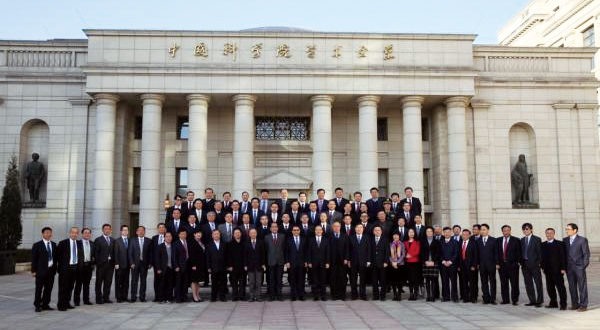In November, 61 Chinese and 16 foreign scholars were elected into the Chinese Academy of Sciences (CAS), bringing the total Chinese and foreign membership to 800 and 92, respectively.
Among the 61 new members, 11 are from the Division of Mathematics and Physics, nine from the Division of Chemistry, 13 from the Division of Life and Medical Sciences, 10 from the Division of Earth Sciences, six from the Division of Information Technology Sciences, and 12 from the Division of Technological Sciences.
Their average age is about 54, the youngest being the 46-year-old biophysicist XU Tao from the CAS Institute of Biophysics who specialized in insulin research.
There are three female scientists among the newly elected. They are mathematician WANG Xiaoyun from Tsinghua University, animal virologist CHEN Hualan from the Chinese Academy of Agricultural Sciences, and HUANG Hefeng, an expert in reproductive genetics affiliated to Shanghai Jiao Tong University.
The new foreign members come from eight countries, including Russia, Sweden, Poland, Japan, the Netherlands, Uzbekistan, the UK and the US. Their specialized fields range from particle physics to environmental sciences and biotechnology. Two have won Nobel Prizes: Prof. Andre K. Geim from the University of Manchester, and Prof. James Fraser Stoddart from Northwestern University. It is the largest number of foreigner scientists to be admitted to the Academy in CAS history.
Foreign scientists who enjoy high international academic standing and have made important contributions to the development of science and technology of China may be nominated for CAS membership.
“It is great to see new scientists, especially those from countries from the Belt and Road Initiative, to join our big family,” said CAS President BAI Chunli. “And the nationalities of foreign members are getting ever more diverse, which will promote exchanges and cooperation in the future.”
In China, CAS membership is the highest title for a scientist, researcher or scholar. According to CAS charter, the members have the responsibility to lead advancements in their fields and help maintain academic integrity.
The CAS Academic Divisions have played a key role as the top think tank in science and technology for the Chinese government. Every year, the divisions produce dozens of consultative reports and suggestions on key scientific and socio-economic development issues to support state-level decision making from scientific strategies to national defense.


